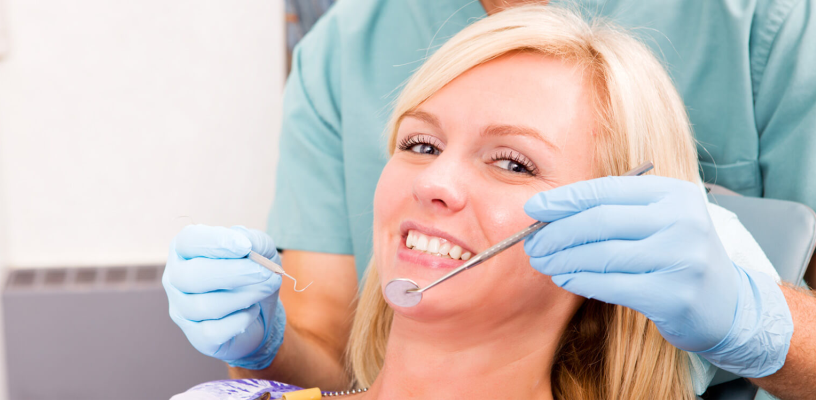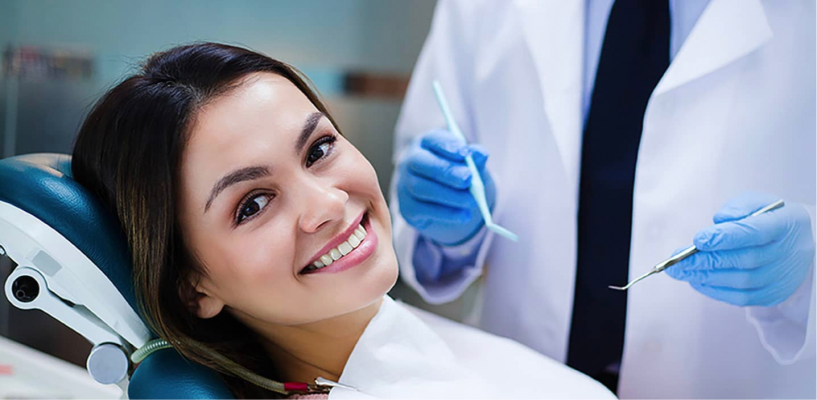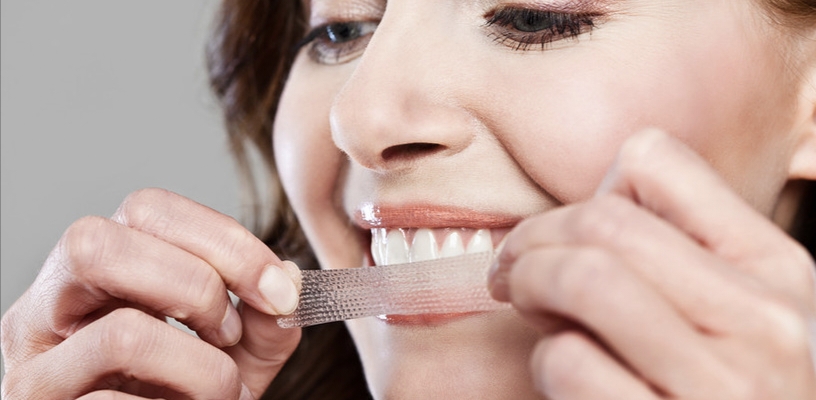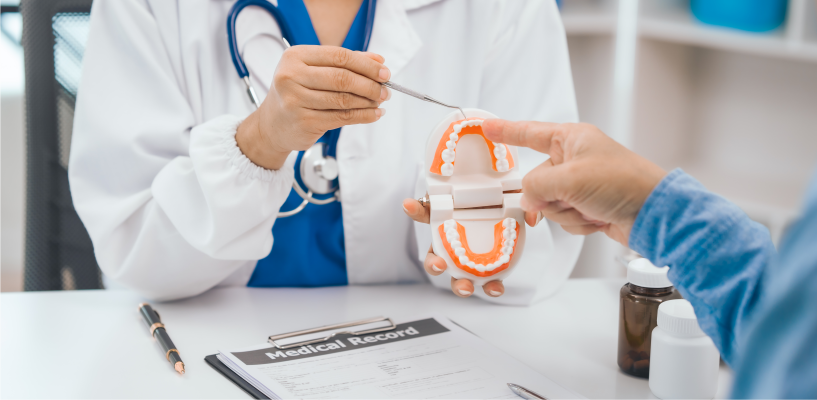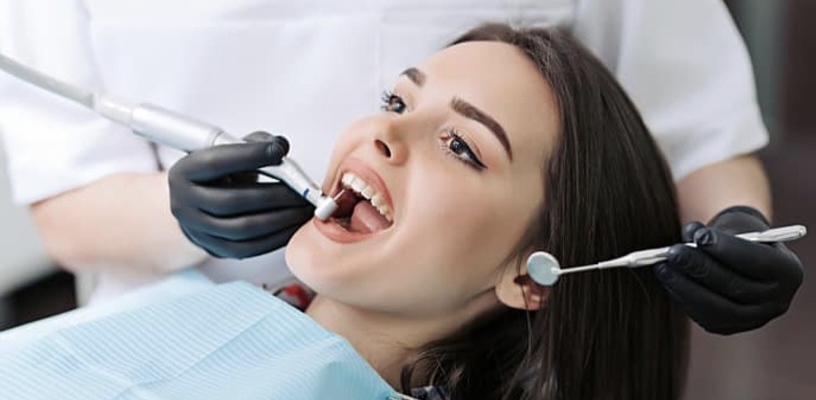
How long after a dentist's cleaning can I eat?
The amount of time you must wait to eat after a dentist's cleaning is 30 minutes. However, the time will depend largely on the type of cleaning and dental treatments you have gotten through from the dentist.
There are different types of cleaning in which the time may vary:
1. Regular Cleaning (Prophylaxis)
If someone had a standard cleaning, then they may eat immediately after the dental cleaning. It is advisable that they avoid consuming hard, sticky, or staining drinks such as tea or coffee for at least 1-2 hours after the cleaning.
2. Fluoride Treatment
If you have chosen a dental cleaning that includes a fluoride treatment, then you need to wait at least 30 minutes to 60 minutes before drinking or eating. It is because fluoride takes time to fully absorb which will make your teeth strong. You must avoid consuming hot beverages as they can have an impact on the effectiveness of your treatment.
3. Deep Cleaning (Scaling and Root Planing)
If you have chosen deep cleaning, then you must wait for a few hours before eating as the gums become more sensitive. You must consume soft and lukewarm foods such as mashed potatoes, soup, and yogurt for the entire day. You must avoid consuming acidic, spicy, or crunchy foods that can cause gum irritation.
Understanding the Importance of Waiting to Eat After a Dental Cleaning
You must give yourself some time before eating after you have dental cleaning. This is done as a precaution as it will increase the overall effectiveness of the dental treatment and will also help to maintain your oral health for the long term. It is important to give your teeth time to absorb fluoride, as it will help your teeth to heal better.
-
Protecting Sensitive Teeth and Gums
After a dental cleaning that may involve root planning or scaling, the teeth and gums may become sensitive, and therefore it becomes essential to give them time. The sensitivity is due to the buildup of plaque and tartar that expose the surface of the tooth and gum tissue to increase the stimulation. If you eat immediately after dental cleaning, especially hot, hard, and spicy foods, they can cause irritation in the sensitive areas. If you wait some time after the dental cleaning, it will minimize the risk of injury.
-
The Crucial Role of Fluoride Treatment Absorption
If your dental cleaning includes a fluoride treatment, you must wait to eat or drink which will maximize the benefits. The absorption of fluoride is essential as it will strengthen the tooth enamel and provide protection from tooth decay. Fluoride requires time to absorb and bond to the teeth. Consuming food or beverages after the dental cleaning may wash the fluoride and reduce its properties to protect your teeth.
-
Safeguarding Your Long-Term Oral Health
If you want long-term oral health, then you must have patience before consuming immediately after dental cleaning. Your mouth needs time to recover and will allow the treatment to work as required. Further, you also need to be mindful of avoiding sticky, sugary, and acidic foods. If you take these precautions, then your teeth and gums will be healthier and will also minimize the risk of dental problems.
Comprehensive Guidelines on When You Can Eat Post-Cleaning
It is important to understand what to eat and when to eat after going through dentist cleaning to protect your teeth from sensitivity. There are different timelines according to the different types of dental cleaning you have gone through.
Special Considerations Following Deep Cleaning Procedures
There are some deep cleaning procedures such as scaling and root planing that may require some extra care and maintenance. After a deep cleaning, you must follow below-mentioned tips:
-
At least wait for 2-3 hours before eating. This allows your gums to heal.
-
For the first 24 hours, you must consume soft foods such as scrambled eggs, smoothies, and soups.
-
Try to drink plenty of water and avoid hot or acidic beverages such as soda and citrus juices.
-
Consume dairy products such as cheese, milk, and yogurt which will promote enamel remineralization and will make your teeth stronger.
-
Avoid staining foods that can stain your teeth.
The Role of Mouthwash in Extending Cleaning Benefits
It is important to use mouthwash after a dental cleaning as it will help to maintain cleanliness. It is advisable to use antibacterial and fluoride mouthwashes for the following reasons:
-
Reduce Plaque Buildup: Mouthwash reduces the buildup of bacteria and prevents the formation of plaque.
-
Protection against Decay: Mouthwashes that are fluoride-based will strengthen enamel and will minimize the risk of cavity formation.
-
Soothe Sensitive Gums: It is better to use alcohol-free mouthwash as they are gentle on gums and also provides refreshing cleaning.
The Importance Of Regular Dentist Visits For Preventive Care
Regular visits to a dentist play a significant role to maintaining oral health and prevent dental issues. It is important to address problems earlier than they become more severe and expensive to treat.
Routine checkups and cleanings are important as they remove plaque and tartar buildup with daily brushing and flossing. It also reduces the risk of bad breath, gum disease, and tooth decay.
Dental visits also help in the early detection of cavities, and other severe conditions, such as oral cancer. Dentists may use X-rays to identify dental problems thereby promoting long-term health. You can even get personalized advice on how to enhance your oral hygiene. Patients may save money, time, and discomfort by regular visits while achieving brighter smiles.

